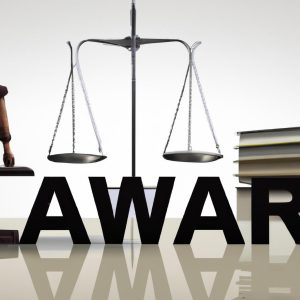In the intricate web of legal documentation, there exist four essential pillars that serve as the foundation for ensuring a secure and comprehensive estate plan. As seasoned legal practitioners at Morgan Legal Group in the vibrant city of New York, we understand the importance of these indispensable documents in safeguarding your assets and wishes. Let us delve into the realm of estate planning to explore the significance of these must-have documents, each playing a pivotal role in orchestrating a seamless transfer of wealth and legacy.
– Essential Legal Documents for Comprehensive Estate Planning
When it comes to comprehensive estate planning, there are four essential legal documents that every individual should have in place to ensure their wishes are carried out effectively. These documents are crucial for protecting your assets, making important healthcare decisions, and appointing individuals to handle your affairs in the event of incapacity or death.
Here are the four must-have legal documents for comprehensive estate planning:
- Will: A will is a legal document that specifies how you want your assets to be distributed after your death. It also allows you to appoint a guardian for minor children and an executor to handle the administration of your estate.
- Trust: A trust is a legal arrangement that allows you to transfer assets to a trustee who will manage and distribute them according to your instructions. Trusts can help avoid probate and provide for the management of assets if you become incapacitated.
- Power of Attorney: A power of attorney is a document that appoints someone to make financial decisions on your behalf if you are unable to do so. This individual, known as your agent, can handle tasks such as paying bills, managing investments, and selling property.
- Advance Healthcare Directive: An advance healthcare directive, also known as a living will, allows you to specify your medical preferences and appoint a healthcare proxy to make decisions on your behalf if you are unable to communicate. This document ensures your healthcare wishes are respected and followed.

– Detailed Analysis of the Four Key Documents Every Individual Should Have
Detailed Analysis of the Four Key Documents Every Individual Should Have
When it comes to estate planning, there are four essential documents that every individual should have in place to protect their assets and ensure their wishes are carried out. These documents are crucial for planning for the future and providing peace of mind for both you and your loved ones. Let’s dive into each of these key documents:
- Last Will and Testament: This legal document outlines how you want your assets to be distributed after your death. It also allows you to appoint guardians for minor children and specify any other final wishes.
- Revocable Living Trust: A trust allows you to transfer ownership of your assets to a trustee to manage on your behalf while you are still alive. This can help to avoid probate and ensure a smooth transfer of assets to your beneficiaries.
- Advance Directive: This document outlines your wishes for medical care in the event that you are unable to make decisions for yourself. It includes a living will and a health care proxy, which appoints someone to make medical decisions on your behalf.
- Durable Power of Attorney: This document allows you to appoint someone to manage your financial and legal affairs if you become incapacitated. It ensures that someone you trust can make decisions on your behalf if you are unable to do so.
| Document | Purpose |
|---|---|
| Last Will and Testament | To distribute assets and appoint guardians |
| Revocable Living Trust | To manage assets and avoid probate |
| Advance Directive | To outline medical care wishes |
| Durable Power of Attorney | To appoint someone to manage financial and legal affairs |

– Specific Recommendations from New York City’s Leading Estate Planning Firm
When it comes to protecting your assets and ensuring your wishes are carried out, having the right legal documents in place is crucial. At Morgan Legal Group, our team of experienced estate planning attorneys recommends four must-have documents to help you navigate the complexities of estate planning:
- Will: A Will is a legal document that outlines how you want your assets distributed after your passing. It also allows you to name a guardian for any minor children.
- Revocable Living Trust: A Revocable Living Trust helps you avoid probate, maintain privacy, and provide for incapacity planning by outlining how your assets are to be managed during your lifetime and distributed after your passing.
- Power of Attorney: A Power of Attorney allows you to appoint someone to make financial decisions on your behalf if you become incapacitated.
- Healthcare Directive: A Healthcare Directive, also known as a Living Will, outlines your wishes for medical treatment in the event you are unable to communicate them yourself.

– Understanding the Importance of Wills, Trusts, Powers of Attorney, and Healthcare Directives
When it comes to estate planning, there are four must-have documents that every individual should have in place to ensure their wishes are carried out smoothly and effectively. These essential documents are:
- Wills: A will is a legal document that outlines how you want your assets to be distributed after your passing. It also allows you to appoint guardians for minor children and specify any other wishes you may have.
- Trusts: Trusts are another crucial component of estate planning, as they allow you to transfer assets to beneficiaries in a more controlled and efficient manner. Trusts can also help minimize estate taxes and provide protection for assets.
- Powers of Attorney: Powers of attorney are documents that designate someone to make financial or medical decisions on your behalf if you become incapacitated. Having powers of attorney in place can ensure that your affairs are handled according to your wishes.
- Healthcare Directives: Healthcare directives, such as living wills and healthcare proxies, outline your preferences for medical treatment in the event that you are unable to communicate your wishes. These documents can help ensure that your healthcare decisions are respected.
Q&A
Q: What are the four must-have documents everyone should have?
A: The four essential documents everyone should have are a will, a power of attorney, a healthcare proxy, and a living will.
Q: Why is having a will important?
A: A will allows you to specify how your assets will be distributed after your passing, ensuring your wishes are carried out.
Q: What does a power of attorney do?
A: A power of attorney gives someone the authority to make legal and financial decisions on your behalf if you become incapacitated.
Q: What is a healthcare proxy?
A: A healthcare proxy is a document that designates someone to make medical decisions for you if you are unable to do so yourself.
Q: What is a living will used for?
A: A living will outlines your preferences for end-of-life medical care, helping to guide your loved ones and healthcare providers in making decisions on your behalf.
Concluding Remarks
In conclusion, having the right documents in place can provide peace of mind and protection for yourself and your loved ones. By ensuring you have your will, power of attorney, advanced directive, and healthcare proxy in order, you can feel confident that your wishes will be known and respected. These four must-have documents serve as a safeguard for the unexpected twists and turns life may throw our way. So take the time to organize your affairs and plan for the future – your future self will thank you.
 As we navigate through the different stages of life, there are certain things that we can never anticipate. Unexpected changes and events can happen at any moment, and it is crucial to be prepared for them. One of the best ways to ensure preparedness is by having the right documents in place. These are essential records that can provide protection and security in various situations. In this article, we will discuss the four must-have documents that everyone should have.
As we navigate through the different stages of life, there are certain things that we can never anticipate. Unexpected changes and events can happen at any moment, and it is crucial to be prepared for them. One of the best ways to ensure preparedness is by having the right documents in place. These are essential records that can provide protection and security in various situations. In this article, we will discuss the four must-have documents that everyone should have.
1. Last Will and Testament
A last will and testament is a legal document that specifies how an individual’s assets and property will be distributed after their death. This document is crucial for individuals who want to ensure that their final wishes are carried out and their loved ones are taken care of. Without a will, the state will distribute the assets according to the laws of intestacy, which may not align with the individual’s wishes.
A will also allows individuals to name an executor who will handle the distribution of assets and manage the estate’s affairs. This can be a trusted family member, friend, or a professional executor. It is important to update this document periodically or after any major life changes, such as marriage, divorce, or the birth of a child.
2. Power of Attorney
A power of attorney (POA) is a legal document that authorizes someone to act on an individual’s behalf in legal, financial, and medical matters. There are two types of POA: general and durable. A general POA gives someone the authority to act on your behalf for a specific period, and it becomes invalid if the individual becomes incapacitated. On the other hand, a durable POA remains in effect even if the individual becomes incapacitated.
POAs are important documents that provide protection and assistance in situations where an individual is unable to make decisions for themselves. It is crucial to have a trusted person, such as a family member or friend, appointed in this role to ensure that your best interests are looked after.
3. Advanced Healthcare Directive
An advanced healthcare directive, also known as a living will, is a legal document that outlines an individual’s healthcare wishes if they become incapacitated and are unable to make decisions for themselves. This document can specify what type of medical treatment an individual wants or doesn’t want, as well as end-of-life care. It also allows individuals to appoint a healthcare proxy, who will make medical decisions on their behalf.
An advanced healthcare directive also provides guidance to medical professionals and relieves loved ones from making difficult decisions in the event of an unexpected illness or injury. It is crucial to discuss these wishes with loved ones to ensure that they are aware of your preferences and can act accordingly.
4. Trust
A trust is a legal entity that allows an individual, known as the grantor, to transfer assets to a trustee to hold and manage for the benefit of the trust’s beneficiaries. Trusts can be useful in providing financial security to loved ones, minimizing estate taxes, and avoiding the probate process. There are many types of trusts available, and the one that best suits an individual’s needs will depend on their specific circumstances.
One of the main benefits of a trust is its ability to minimize estate taxes. It can also be used to protect assets from creditors, ensure that assets are distributed according to the grantor’s wishes, and provide for special needs individuals. It is essential to work with a lawyer or financial advisor to create a trust that aligns with an individual’s goals and needs.
In conclusion, these four must-have documents provide essential protection and security in various situations. It is important to review and update these documents regularly to ensure that they reflect an individual’s current circumstances and wishes. Additionally, it is crucial to keep these documents in a safe and accessible place and inform loved ones of their whereabouts. By having these documents in place, individuals can have peace of mind knowing that their affairs are in order and their loved ones will be taken care of in case of any unexpected events. Remember, it is never too early to plan for the future.












